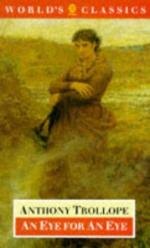The father would not see his heir,—and never saw him again. As to what money might be needed, the lawyers in London were told to manage that. The Earl himself would give nothing and refuse nothing. When there were debts,—debts for the second time, debts for the third time, the lawyers were instructed to do what in their own eyes seemed good to them. They might pay as long as they deemed it right to pay, but they might not name Lord Neville to his father.
While things were thus the Earl married again,—the penniless daughter of a noble house,—a woman not young, for she was forty when he married her, but more than twenty years his junior. It sufficed for him that she was noble, and as he believed good. Good to him she was,—with a duty that was almost excessive. Religious she was, and self-denying; giving much and demanding little; keeping herself in the background, but possessing wonderful energy in the service of others. Whether she could in truth be called good the reader may say when he has finished this story.
Then, when the Earl had been married some three years to his second wife, the heir died. He died, and as far as Scroope Manor was concerned there was an end of him and of the creature he had called his wife. An annuity was purchased for her. That she should be entitled to call herself Lady Neville while she lived, was the sad necessity of the condition. It was understood by all who came near the Earl that no one was to mention her within his hearing. He was thankful that no heir had come from that most horrid union. The woman was never mentioned to him again, nor need she trouble us further in the telling of our chronicle.




